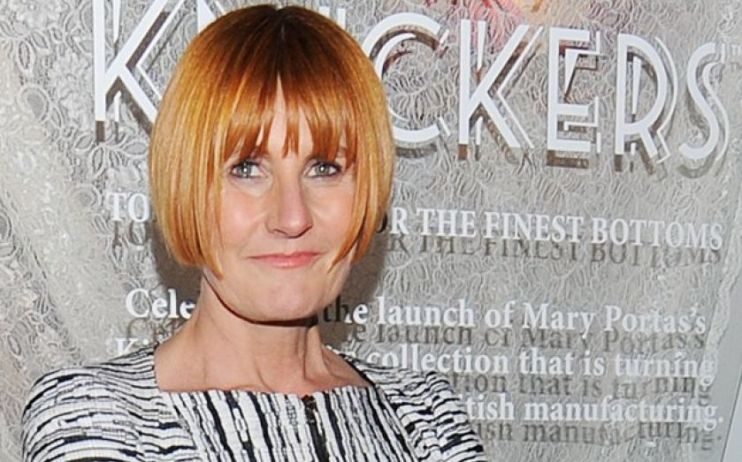Exclusive: High Street queen Mary Portas says retail’s 2022 race to the bottom is finally over

As the new year has kicked off in earnest, now is the time for retailers to take stock of 2022 and plan for the year ahead.
Set against a turbulent backdrop, with 2022 being dubbed a ‘perma-crisis’ by Collins Dictionary, British independent retailers are hopeful for a more successful 2023 with almost half expecting their revenues and profits to increase next year, according to new Ankorstore research out this morning.
However, many retailers may not get to enjoy the promise and hope of 2023 without immediate and significant support as the realities of the cost of living crisis and raging inflation bite.
In fact, only weeks ago. Made.com confirmed it has entered administration and has sold its brand, website and IP rights to. Next.
Plenty of reason for City A.M. to sit down with the ‘Queen of retail’, or Madam High Street, retail consultant and broadcaster Mary Portas, to find out what the retail veteran makes of the current state of play, and to zoom in on the trends and challenges the sector faces as we gradually head into 2023.
Firstly, inflation is hitting retailers hard, and a Christmas slump in spending is expected. How do you see the High Street this winter, Mary?
I think people will buy more carefully, a bit less, but they will still spend. Inclusive pricing strategies are key. Awareness of sustainability and provenance is also more and more important so tap into that. And the other big driver at Christmas of course is joy. Retailers need to think about how they deliver that.
“It’s no longer just about price. We’ve come out of the period of the ‘race to the bottom’.”
Mary Portas
For consumers looking to spend, high quality is the second most important attribute – after price– when thinking about what they want from their shopping experiences next year. How will this impact the High Street, can we expect more Poundlands, Icelands and other budget players?
Moving forward, retail needs to offer a new kind of value. It’s no longer just about price. We’ve come out of the period of the ‘race to the bottom’. We’re now more considerate about what we’re buying. We want to buy better. And so retailers must think about offering value that delivers on many levels.
As inflation bites and the cost of living crisis rages, are sustainability, locally sourced products and more personalised shopping experiences a backseat?
No. We’re experiencing a profound shift in how we live, buy and sell. All the research tells us that people want to buy in a way that reflects their social and environmental values. Of course, you’ll get the retailers – and buyers – who don’t care about that. But the shift to buying better isn’t a trend. It’s a commercial reality.
Speaking of commercial realities, buy-now-pay-later services are on the rise. How do you see this trend?
It’s certainly here to stay. And in a way, it’s nothing new. Our grandparents might have used the pawn shop. Our parents shopped with catalogues or bought on tick. And in the Christmas period, we all experience disproportionate pressure on our spending so there’s no doubt that BNPL can be helpful.
To spread costs?
Yes, for lots of people, it’s a vital way of spreading the cost. But there is a check on this: we need some kind of structure to ensure people don’t overspend using these services. We know where that got us in the past.

Finally, a staggering 97 per cent of independent British retailers believe the government has not provided enough support amidst the ongoing perma-crisis, according to an Ankorstore study out today. Where do you stand?
With the retailers. The government isn’t showing any signs of grasping the potential impact of all this. Retailers are playing their part by pivoting and innovating. People are doing their bit by shopping locally. But the government must act too.
Practically every retailer is calling on the government to take action in next week’s budget to preserve British high streets. Do you think that is necessary? What would happen if they didn’t?
Yes, action is certainly needed. Almost half of retailers say they’ll have to close or consider closing if no help is offered – and that is potentially devastating not just for our high streets but our communities.
“Independent retail isn’t just about bricks and mortar. It’s about people, community, and connection.”
Mary Portas
We were reminded of that powerfully during Covid. If retailers fail at the rate this research suggests then our communities – and the people in them – will be hugely impacted.